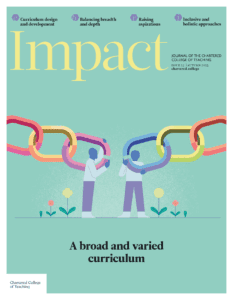MARK LESWELL, RESEARCH LEAD, SWALE ACADEMIES TRUST, UK
This article explores research-informed approaches to implementing productive challenge in schools, distinguishing between helpful cognitive struggle and counterproductive difficulty. It offers practical strategies for educators to calibrate appropriate levels of challenge while avoiding working memory overload, and addresses common misconceptions about what constitutes effective challenge.
Understanding challenge: Research perspectives
Difficulty
Difficulty refers to how taxing a task is, whereas challenge refers to the productive cognitive effort that leads to learning. As Soderstrom and Bjork (2015) note, tasks that create difficulties during practice can enhance long-term learning, provided that these difficulties are ‘desirable’ rather than arbitrary.
Desirable difficulties
Robert Bjork’s research on ‘desirable difficulties’ provides one theoretical foundation for understanding meaningful challenge. Bjork iden
Join us or sign in now to view the rest of this page
You're viewing this site as a guest, which only allows you to view a limited amount of content.
To view this page and get access to all our resources, join the Chartered College of Teaching (it's free for trainee teachers and half price for ECTs) or log in if you're already a member.











